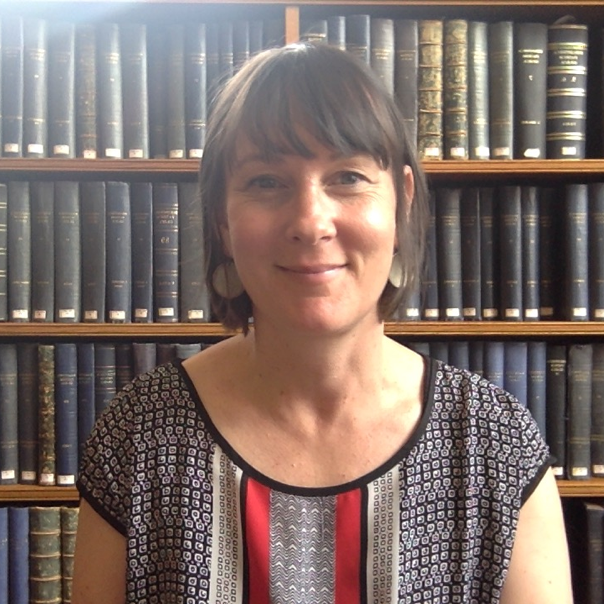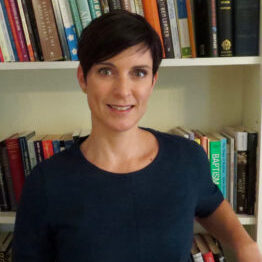Episode Transcript
[00:00:08] Speaker A: You're listening to by the well electionary based podcast for preachers with Bran Barber and Robin Whitaker.
[00:00:21] Speaker B: We continue in the season of Epiphany, this week being the fifth week. And we'll be looking at Isaiah, chapter 40, verses 21 to 31, and Mark, chapter one, verses 29 to 39. And we're going to start with Mark Robin.
[00:00:37] Speaker C: We are, and it's the healing of Peter's mother in law. And to give it just a tiny bit of context, you'll remember last week was the exorcism in the synagogue. And in a sense, this is the pairing or a parallel with that story. So we've had an exorcism of a man in a public space. Now we have a healing that's also about a casting out of a fever, very similar language and movement of a woman in a private or domestic space.
But both in Mark will lead to more healings and more exorcisms and a kind of setting that foundation for Mark's portrayal of Jesus as exorcist, healer and proclaimer of the kingdom of God. This is what the kingdom of God looks like.
[00:01:20] Speaker B: And it's really important, isn't it, to have that overview sense? Because in some respects, these ten verses, you might think, where am I going to preach? Like, how does this all connect?
Clearly it's healings, but there's a much bigger thing going on here. And we talked last week, too, about the apocalyptic context, really, or the apocalyptic stage on which Jesus is being depicted here, and the sort of sovereignty of God over everything, including evil, and here over illness.
[00:01:51] Speaker C: That's right. So the kingdom of God coming near, which is that proclamation right back in verse 14 is now marked. These are the signs of that for Mark's gospel.
I also want to say, in the way that Mark structured it there, and the lectionary reading this week is a little patchy. We've all got like sort of vignettes of things. It's not.
[00:02:10] Speaker B: I suppose that's what I was trying to indicate. Where do you hold it all? Yes.
[00:02:13] Speaker C: So you might want to pick a bit to focus on, but I kind of like that if we're attentive to the structure, not saying this would necessarily make it into the sermon, because it's boring exegetical stuff. But the structure to me goes from kind of individual healings, even though we don't get the names of either the woman or the man, but to very quickly, multiple. There's something that moves from the particular to the universal that for me also mimics the kind of flow of the gospel.
[00:02:42] Speaker B: Yes, and the drama and the speed that is Mark's gospel too. So exegetically.
[00:02:49] Speaker C: What struck you in this reading? What do we need to be attentive to?
[00:02:52] Speaker B: I guess the first thing, which is a couple of verses into the set text, but that once Simon's mother in law is healed, Jesus takes her by the hand and lifts her up, which is the same wording that is used of Jesus on the cross. So again, it's Mark using key terminology to point towards the passion. Yeah.
[00:03:17] Speaker C: And I think last week you pointed out the cry in the temple. The loud cry, again, is like Jesus on the cross. So we've got the cross shadowing really early on here.
[00:03:25] Speaker B: Yeah. Another little reminder.
And look, also we will talk about how. So there was no period of recovery for Simon's mother in law. The fever left her and she began to them. Yeah.
And I think the word serve is something we do need to have a conversation about, just in terms of certain hang ups some of us might have about serving and the fact this is a woman, the first thing she does serve.
[00:03:51] Speaker C: It's a bit like cringy, but it's the diaconia where we get the deacon word from which in other parts of the gospel is translated as ministered. And it has everything from a very everyday meaning of serving, like you put food on the table through to in market. The angels Dioconeo Jesus, they serve him or they minister to him at the foot of the cross. The women who watch in 1541, I think it is, are described as those who'd ministered to him on the way.
[00:04:21] Speaker B: To Jerusalem using that same word.
[00:04:23] Speaker C: And most notably, lest we think that this is some mere domestic act not worthy of recognition, Jesus himself, in chapter ten, when he talks about the son of man, came to not to be served, but to serve, uses diaconia.
We're getting more into preaching themes already. But for me it's not to ignore that this is very much a domestic female act in its ancient setting. But we shouldn't therefore not give it the respect and honor that it deserves.
[00:05:01] Speaker B: And I would hope, just on a feminist political note, that all that we've.
[00:05:05] Speaker C: We'Re never feminist or political, but actually.
[00:05:08] Speaker B: This traditional woman's work or domestic work has been shown to be crucial to the running of society and worth thousands of dollars to the domestic economies of most nations. So we are not dismissing it. No. And just also the world would be a much better place if we did all serve each other. That's the end of my little end.
[00:05:27] Speaker C: Of the rant today. No, I totally agree. And if one was to preach on this, just to jump ahead, particularly on this few verses around the healing of Simon Peter's mother in law, you know, talking about acts of service and how varied they know, it goes to that broader theme of just christian life. We all have our calling, we all have our gifts, and for some, that is providing hospitality and that should not be seen as anything lesser than, in fact, it is central to all the gospel stories.
[00:05:58] Speaker B: And Jesus eats a lot with people. Exactly. So what else was there? Well, that evening at sunset. So we've got to remember this is all happening on the Sabbath day. Well, this healing of the mother in law and the exorcism of the unclean spirit was all on the Sabbath.
We're being told in verse 32 that the Sabbath is officially ended now, aren't we?
[00:06:21] Speaker C: Yes, with the evening, that's the end.
[00:06:23] Speaker B: Of the Sabbath day. So then they brought to him all who were sick and possessed with demons. So as you mentioned, this is the sort of hyperbole. This is where the masses turn up and you get this sense of just insuperable human need, this wave of need that comes to Jesus, the whole city.
[00:06:43] Speaker C: In verse 33 at the door, which is probably hyper for me.
[00:06:46] Speaker B: Just as an aside, I had the privilege of, as a young theological student, to go to Rome and had some sort of audience with Pope John Paul. I'm not sure they've got different ways.
[00:06:58] Speaker C: That's why you're so holy now.
[00:07:00] Speaker B: But I was just totally struck and maybe, yes, as a Protestant, but that the pope blessed people who were unwell or had ailments and just watching them stream across the.
[00:07:11] Speaker C: And it is thousands that.
[00:07:15] Speaker B: It was.
[00:07:15] Speaker C: Extraordinary for know, making this come alive kind of thing.
[00:07:19] Speaker B: Yeah.
[00:07:19] Speaker C: The other thing about the evening of the Sabbath, and Joel Marcus talks about this in his anchor Bible commentary on Mark, is that he talks about the tradition, know, when the Sabbath ends that night is you'd go and have a meal. And there's a sort of a service that we can trace back to the second temple period. So possibly around this time of a Havdala service, which he said celebrates God as creator. Link here to Isaiah 40, but also in some traditions was associated with. In proclaiming God's creator power, associated with fighting demons and other magical powers. So just like that might be a little cultural thing we just don't get. And yet that one verse about the evening at sundown, if that was the typical jewish practice in a home, and then you've got Mark talking about casting out demons. It gives it almost a liturgical kind of significance.
[00:08:16] Speaker B: Significance, yeah.
[00:08:20] Speaker C: The other thing to say, I guess if you look at the end of this reading, in terms of other exegetical points, we've got a very strong word with them. Hunting out Jesus. I don't know if you noticed that.
[00:08:35] Speaker B: Oh, yeah.
[00:08:35] Speaker C: Jesus tries to find alone time.
And in verse 36, it is an unusual phrase, but almost gives this haunting kind of, Jesus can't get away from need.
[00:08:48] Speaker B: Like, it doesn't say they looked everywhere for him.
[00:08:50] Speaker C: No, they hunted him.
[00:08:52] Speaker B: They hunted him.
There's a desperation built into that.
[00:08:56] Speaker C: Yeah, I think so. I think so.
[00:08:58] Speaker B: And it also plays into that image of the human need that is everywhere. And I think that's something to point out here, just in terms of perhaps thinking as a Christian or as a minister that you're there to serve everyone's needs.
[00:09:13] Speaker C: Oh, yeah.
[00:09:14] Speaker B: Jesus doesn't hear and can't and goes off actually remote for some time out.
[00:09:21] Speaker C: I know. I did think preachers might resonate with those couple of verses about sometimes the pressing need of your congregation and community can know, invade what feels like much needed rest time. And it's not to ignore the need, but the balance. That's a whole other sermon. Probably the last thing I'd comment is, again with Mark, we've got to be attentive to these little settings. So even in verse 39, when Jesus now goes out throughout Galilee for what it becomes a regional ministry, he still is going into synagogues. So again, this is portraying Jesus as deeply embedded in Judaism and teaching. Yeah, and teaching. So we've got the preaching and the teaching, which will tease out a bit more, go hand in hand here.
[00:10:11] Speaker B: Yeah, well, I was know we've seen this healing, the private and the public, huge, massive healing. And here, though, he said to them, let us go on to the neighboring town so that I may proclaim the message there also, not so I may go and heal everyone there also.
And so it's not an either or.
It's the priority of proclamation that seems to be being put forward here. Yes. And as we saw in last week's reading, that proclamation or teaching, I think you could almost. They're interchangeable. Almost. Perhaps that is healing. So the proclamatory act is itself or can itself be healing. And if it's done faithfully, is performative and effective.
[00:11:00] Speaker C: I agree entirely and would only want to add that in Mark, it is then also always accompanied by deed. So, yes, I mean, by the healing.
[00:11:12] Speaker B: That'S the deed that's done.
[00:11:14] Speaker C: Yes.
So word and deed are not separable, although I take your point, I think proclamation has the priority.
[00:11:21] Speaker B: Well, it's interesting here, the way, maybe the way this is put here, and I was reading a commentary in preparation for this conversation, where the writer suggested a modern analogy where you might have a minister with tremendous pastoral counseling gifts who actually intentionally chooses to do that less and to take on a much more overtly teaching ministry in the context and the sort of resentment that might bring up amongst the community. And it's not that they've stopped doing that pastoral counseling, it's that this proclamatory act comes first and has priority, perhaps, according to what this text tells us here.
[00:12:06] Speaker C: And that can be a challenge in congregational life, too, to make sermon preparation a priority when there are endless pastoral and administrative demands pushing in.
Fran, what would you preach out of this? What themes emerge?
[00:12:28] Speaker B: Lots of them.
[00:12:29] Speaker C: Yeah, there's a lot that you have to pick one if you're a preacher.
[00:12:33] Speaker B: This week, I remember last week we talked about what is the brokenness or the evil that in us, ourselves, and in our communities that we need to be liberated from? In a sense, that's still the question for this part of this chapter. But here it's disease, which is either disease or it's disease. Yes. However you put it, we are in the season of Epiphany, which is about the disclosure of God in the world. And we've talked about how God's sovereignty is just portrayed in Mark to be complete but very personal here and touching on people's real lives.
And that taps into the conversation in a moment around Isaiah, what the Isaiah passage says about God and the nature of this God unlike any other small g, God.
[00:13:35] Speaker C: Yeah, I think if I was going to preach this week, I'd want to actually do something with putting Isaiah and Mark side by side about what is God like? And we'll get to that in a moment. But if you were just going to preach on Mark, I mean, one approach would be to pick up this Diakhania and talk about service and what is the service we do.
Another approach would be to think in our communities about how word and deed are going together. And have we got that balance right? A time to sort of reflect on the ministries and your community and how that balance is going. But if you were going to do an epiphany theme, I guess talking about who Jesus is revealed to be here underneath all of these stories in chapter one of Mark is Jesus with the authority of an exorcist, and Jesus the exorcist is not really.
[00:14:35] Speaker B: That's not a go to, no image. That'd be an interesting sermon, you know.
[00:14:41] Speaker C: Which then requires you to do some, I think, quite careful theological work about. Well, what would Jesus want us to exorcise from our lives in terms of the things that disempower, inhibit and how.
[00:14:56] Speaker B: To make maybe how to rob a life. Yeah. How to make the marginal not more central or something. Yes.
[00:15:03] Speaker C: And there'd be ways to play with that language of exorcising. Like we do that in all sorts of ways and in negative ways. We sometimes have exorcised things from our lives that actually need to be central to our lives in that we've got our priorities. Know you could play around with some of that.
[00:15:23] Speaker B: Yeah.
[00:15:23] Speaker C: But back with Isaiah in a moment.
[00:15:28] Speaker A: If you're enjoying by the well, please take a moment to review us wherever you listen to podcasts.
[00:15:37] Speaker C: So, Isaiah 40 21 to 31.
[00:15:40] Speaker B: So we had Isaiah 40 in Advent two.
[00:15:43] Speaker C: We did. I believe it's a very long chapter full of many richnesses, which one could probably preach ten different sermons on. Yeah, but we just have these ten verses.
[00:15:52] Speaker B: So we're in second Isaiah.
And the context is the exile, isn't it just after the. Well, the exile where people fail to, well, believe that God is not faithful and has left them bereft.
[00:16:07] Speaker C: Yeah. So possibly to people in Babylon, or it's that babylonian exile.
And it's a typical prophetic passage because the prophets are about speaking a word of hope into, to put it mildly, less than ideal circumstances. So again, I'm conscious there are many of you around the world who are still in terrible times with the COVID pandemic. And there's an awful lot of richness in the Sazaya passage. It might actually feel like a more appropriate or relevant passage to preach at these times.
[00:16:45] Speaker B: Yes, I was just thinking, and this is going out of time here, but the COVID context and how dramatic it is still in some parts of the world makes that mark reading about healing also extremely poignant.
[00:16:58] Speaker C: Yeah, it does.
And also probably gives us a bit of a pastoral mandate to talk about that very carefully.
[00:17:04] Speaker B: Yes.
[00:17:04] Speaker C: Which we didn't touch on when we talk about miraculous healing. And we might have people in our communities who have died and not been miraculously healed.
We're preaching to the choir here because you all know how hard this is, but just being cautious with that.
[00:17:19] Speaker B: Yeah.
Anyway, we're moving on to Isaiah.
Interested that something I read suggests that the structure of this part of the chapter 40 here is a bit like Job 38 and onwards with disputation with the questions, have you not known? Have you not heard in 21? And then to whom will you then compare me in 25?
[00:17:42] Speaker C: It's got an element job to it, doesn't it?
Can you comprehend?
[00:17:47] Speaker B: Yeah. Can you comprehend?
[00:17:48] Speaker C: I want to almost go back to verse 18, because this section, at least of the chapter and the chapters and verses are entirely arbitrary in that they're added later. But to whom would you liken God and what likeness for him propose? And then it talks about, is God like an idol? Is it God like someone you can forge out of silver? And of course, in antiquity it's not. Do you believe in God or not?
[00:18:12] Speaker B: Which is the modern question.
[00:18:13] Speaker C: Yeah, but it's like, which God? Because there are multiple gods and you.
[00:18:17] Speaker B: Must have an allegiance to something. Have an allegiance to something, and possibly.
[00:18:21] Speaker C: In most cultures, many. But the point that will emerge is God is not like these gods who are idols or who are taken from nature, animals or stars or suns.
And really, it's a very expansive view of a creator. Like this is a grand vision of the divine.
[00:18:39] Speaker B: And it is a powerful philosophical question, too. If God is not big g, God here, the holy one, is not a category, is not part of the category. God, small g, how do we talk about God? And the biblical answer is that God is known in God's words and deeds.
And they're matching up.
[00:19:03] Speaker C: Yes.
[00:19:04] Speaker B: Which relates to what we were talking about in Mark as well, about Jesus.
[00:19:09] Speaker C: Coming back to mark.
The other thing I'd noticed just in noticing some of the language here with the idols and the craftsman language becomes relevant. So the bit that the lectionaries left out, because when we get to verse 22 and 23, and it talks about God planting and blowing and shaping and stretching like a tent, spreading the heavens like gauze, it's very kind of almost pragmatic, crafty language. So it's a flipping of like, God is not something crafted, God is the crafts person.
[00:19:45] Speaker B: Yeah, those verbs really stood out for me. Stretches and spreads and brings princes to naught and makes the rules of the earth as nothing.
[00:19:55] Speaker C: It almost takes that Genesis, one image, which is all about God, says and things happen and makes it a far more tangible God, kind of physically moving and in a hands on kind of.
[00:20:06] Speaker B: Way, and intruding in the political processes to point out what's not legitimate.
[00:20:11] Speaker C: Yes, there is a striking. Despite the grandiosity of these images that call us to have this sort of lofty, almost step removed perspective, the text does return to the personal. And again, depending on your context. It might be things like verse 29 and 30 that really are the core you want to go to. He gives vigor to the weary, great power to the powerless.
Despite this God having crafted the universe a few verses earlier, there is attentiveness to those who are weary and powerless. And that's, I think, the prophetic word of comfort to the struggling in Babylon.
[00:20:52] Speaker B: And that part of faithfulness is waiting, is waiting for that fullness that she's promised.
[00:20:58] Speaker C: It reminded me of. Sorry, do you have more exegetical points before I go?
[00:21:02] Speaker B: Well, I don't think so.
[00:21:03] Speaker C: Okay, good. It reminded me of some things I read in Julia Baird's phosphorescence book last year, where she talks about the overview effect, which is quite well documented. Now, which is the perspective or the effect on astronauts who go up to space. And there's been several astronauts that talk about what it's like.
So there's a quote here from Jim Lovill. I realized this is from being up in space on Apollo eight. I realized how insignificant we all are, as if everything I've ever known is behind my thumb. And then went on to talk about how that perspective of being so removed from the earth and seeing the earth so small from this different point of view actually only increased his awe and wonder and his sense of a great deal of empathy and care for what was on earth. So it's almost paradoxical. Paradoxical.
And he's not the first astronaut to have talked about this. So she talks in her book about the overview effect. And it just reminded me of some of the language here in Isaiah 40, that, on the one hand, there's part of me that goes, how is talking about God as transcendent and up in heavens helpful for the struggling on earth? But I think this text is inviting us to kind of enter into this much more just grand scheme of things and recognize that God's time and God's expanse holds us. What holds us. That in the grandeur, there is comfort, that God is attentive to the small and the.
[00:22:36] Speaker B: Yeah.
[00:22:37] Speaker C: So I don't know if that's helpful, but we'll link to. There's a guardian article with a lovely excerpt of the book.
[00:22:42] Speaker B: All right.
[00:22:42] Speaker C: If people want to read some of the quotes, because I'm not really doing it justice, but I'll link to that article in the show notes.
So I think if I was going to preach on Isaiah or, in fact, draw the two readings together, I'd want to do a kind of what is God like? And you could even use verse 21 as a lovely refrain throughout the sermon. Do you not know, have you not heard that God is like this, that God does this? This is who go to the Jesus story, go to this Isaiah language. Do you not know? Have you not heard this is what our God is like? And you could even intertwine that with some personal stories or things from your local community.
[00:23:21] Speaker B: Yeah.
[00:23:22] Speaker C: What would you preach, Fran?
[00:23:23] Speaker B: Well, I struck by that verse 31 about those who wait for the Lord shall renew their strength. I'm drawn to it because what struck me in the two readings today is the vast, miraculous action of God on vulnerable humanity who have disease or are ill.
And we're in a culture when we're resourced in a western world, where we're formed to get on with a job and take action and find out what the plan is and what we should do about it, whatever the it is. And this invitation here is that. Actually, no, it's faithful to wait. And this weight is a weight that has hope within it. It's a faithful and hopeful waiting for a promised future that we can't bring ourselves.
[00:24:13] Speaker C: Yeah, well, that's a beautiful way to end. Thank you for listening. Everybody.
[00:24:25] Speaker A: Is brought to you by Pilgrim Theological College, the uniting church in Australia, and produced by Adrian Jackson.





